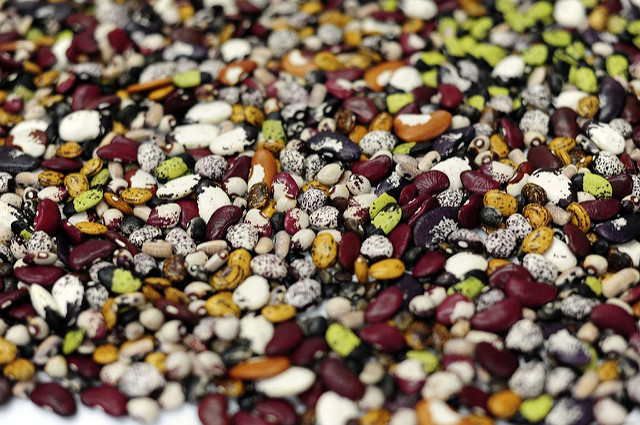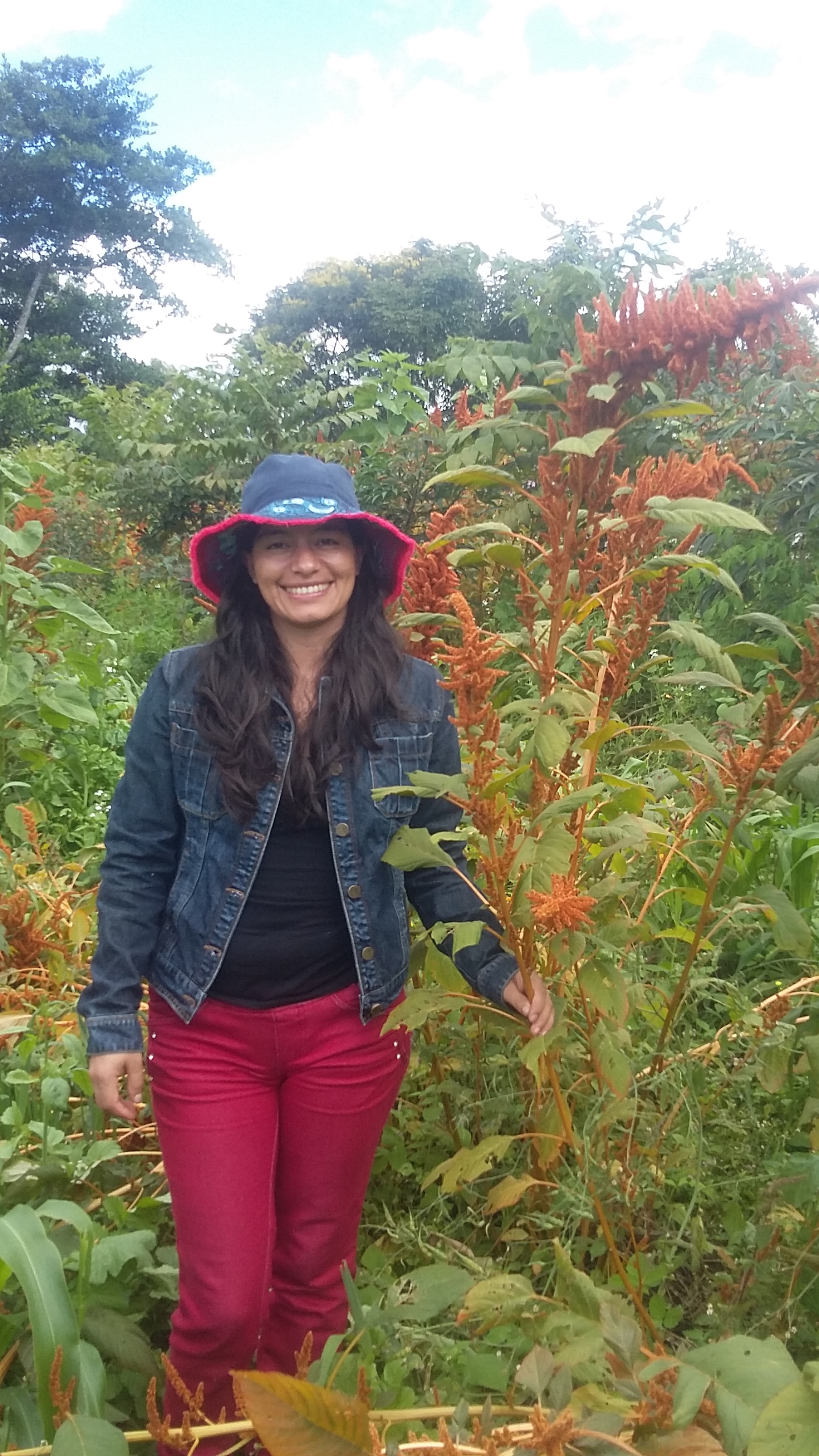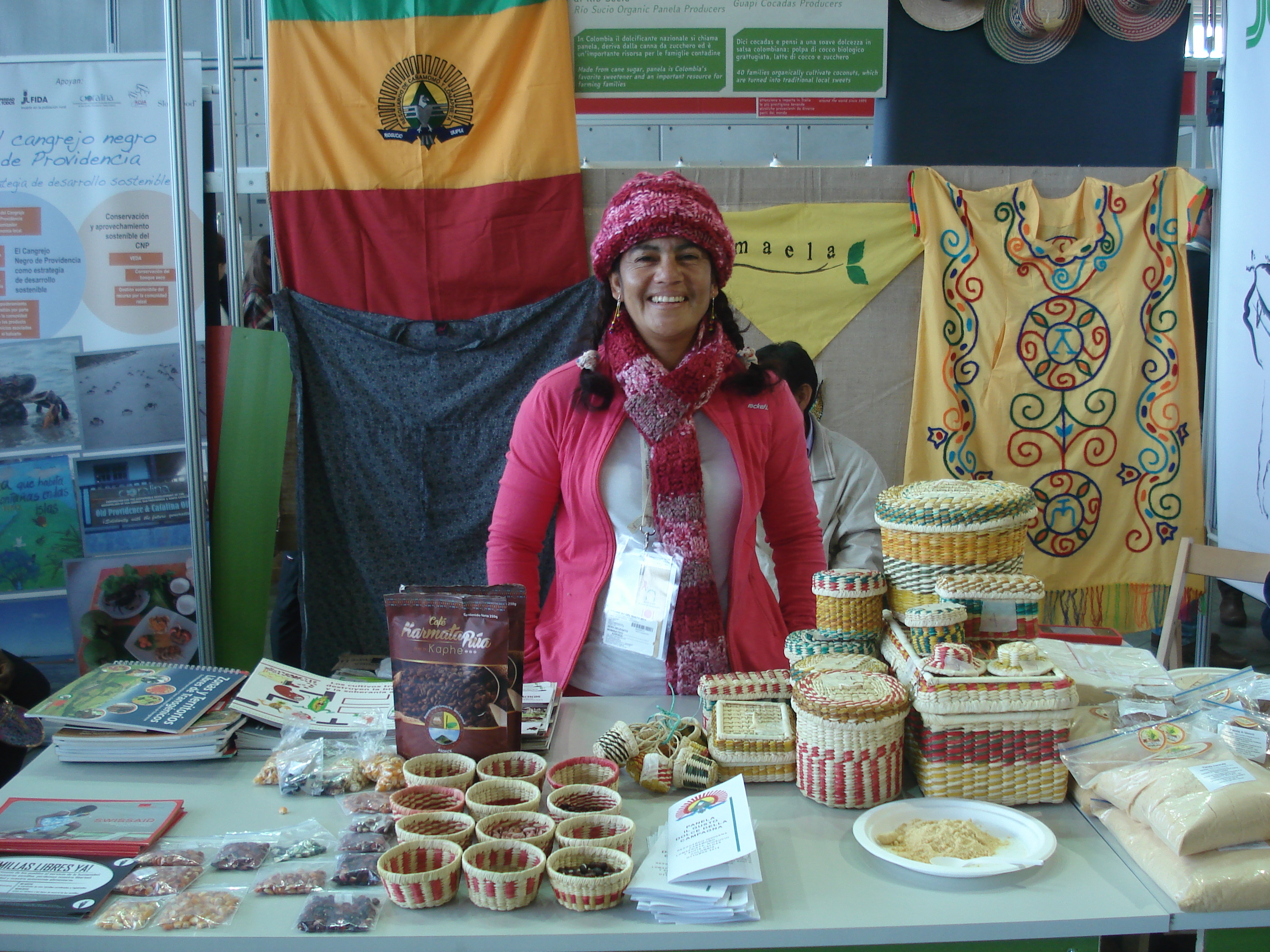Like this article? rabble is reader-supported journalism. Chip in to keep stories like these coming.
Protection of native seeds is growing strong in Colombia. Colombian women are preserving seeds from multiple threats such as mining, free trade agreements, agrochemicals, hybrid and transgenic seeds among others.
Fernanda Sánchez Jaramillo spoke with three women from three different provinces in Colombia about how being a seed guardian is an act of resistance, promotes food security and maintains cultural identity.
Tulia Álvarez is a 70-year-old smallholder farmer and a seed guardian in Colombia. Her family has lived all its life in the countryside where Álvarez learned how to raise animals and cultivate the land.
Life in the cities scares her. She prefers to stay away and travels occasionally to Duitama and Bogotá to sell food that she grows at her farm. Álvarez sells carrots, corn, beans, cilantro, quinoa, amaranth, lettuce, chard, peas and native seeds.
“Our seeds are the most important for our food security and food sovereignty; if we don’t take care of our seeds we won’t have food,” Álvarez told rabble.
When asked why women become seed guardians, she responded that women are traditionally responsible for the family orchards and they are concerned about providing food to their families.
There are several women’s organizations protecting seeds in Boyacá such as San Isidro, Asociación de Mujeres Presente y Futuro, among others. “Seeds are sacred. It is why we have to protect them and love them. If there is abundance of seeds and we waste them, they will be gone… like a child that is reprimanded and never comes back.”
While Álvarez is preserving seeds in Boyacá, thousand of kilometers south of Colombia, Alba Portillo is doing the same with other women.
Portillo is 32 years old and was born in Yacuanquer, a small town located near the Galeras Volcano. Yacuanquer is a Quechua word that means sepulchre of the Gods.
Her parents are farmers. She was raised by a family, which has the tradition to talk in the kitchen while making meals on a wood stove with food they grew and harvested such as beans, corn, squash, arracacha and cilantro.
“In my opinion each afro-Colombian woman, female farmer or Indigenous woman who decides to plant native seeds is a seed guardian,” Portillo told rabble.
Photo: Alba Portillo
Being a seed guardian is more than a job, it is her vocation. When she was growing up, Portillo observed that the landscape of the territory she calls home was dramatically changing. Famers had less water and food. She also encountered classmates at school who thought that kids from the countryside were poor and fools.
Later on she came to the conclusion that a lot of people in the cities don’t value farmers who grow their food. “Farmers’ work is underpaid and not appreciated. Then, I reflected that food is life’s centre and without seeds food won’t exist. If seeds are gone it will be the extinction of a millenary culture, identity, memory and our roots,” Portillo says.
Portillo belongs to an organization called Red the Guardianes de Semillas de Vida were she promotes growing food in a sustainable way and without agrochemicals. “If farmers don’t have seeds, water and land, they lost everything. Losing the seeds is like being orphans of history.”
Nariño is the centre of agro diversity on the Ecuadorian Andes region. Nowadays Portillo’s organization has 1,200 seed varieties such as quinoa, amaranth, native corn, beans, peas, flowers, tomato and different kinds trees.
“Seeds are sacred. They have lived here and evolved during 11,000 years — in relation to human beings — as part of our family, who has the food has the power,” says Portillo.
Velma Echavarría is an Embera Chamí Indigenous woman who belongs to the Cañamomo-Lomaprieta Reserve in Riosucio (Caldas). She and approximately 40 other women take part of the network that guards seeds.
Cidra, yacón, sagún, cassava, beans, corn, medicinal plants and timber-yielding trees are some of the seeds they protect. Their task is not easy.
“Corn seeds are the most threatened and more difficult to preserve because transgenic corn crop is legal in Colombia and there is not protection from the state for afro-Colombians, Indigenous and farmers who want to preserve native seeds; on the contrary, regulations pose a risk to native seeds and rural communities,” Echavarría told rabble.
Photo: Velma Echavarría
On her reserve, Echavarría and other people offer educational sessions to their community about the harmful impact of transgenic seeds on their food sovereignty and food security.
Thanks to their work, Cañamomo-Lomaprieta Reserve was declared a Transgenic Free Territory in 2009.
Preserving seeds is crucial to Indigenous autonomy. “The relation is direct and essential. This is an act of resistance and autonomy because we pursue the good life for communities within the ancestral territory, prevent displacement and the lost of cultural identity.”
Fernanda Sánchez Jaramillo is a Colombian journalist, has amaster’s degree in international relations and is a social service worker. During her time as a social service worker, she was elected as a human rights representative for people of colour at BCGEU union in Vancouver. Fernanda has 20 years of experience. She worked for traditional media sucThree Colombia women tell us why preserving seeds is an act of resistanceh as El Espectador and El Tiempo in her country but now she is a freelancer for online media in Colombia, Spain and Latin America.
She wrote seven books about women. In 2014, she received the Colibrí award in Barrancabermeja (Colombia) for her contribution to peace through journalism. Nowadays, she is a Carter’s Center fellow and a law student. She is a feminist.
Photos courtesy of Velma Echevarría and Alba Portillo.
Node image: flickr/Global Crop Diversity Trust






